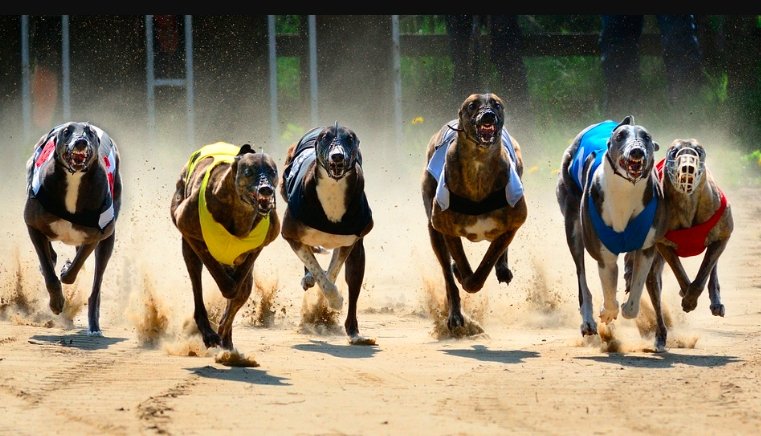Greyhound racing, once a popular and profitable pastime across Scotland, is now facing the prospect of extinction in the country. With the closure of Scotland’s last remaining track, Thornton Stadium, and growing public and political pressure, the future of the sport is increasingly uncertain. The Scottish Parliament is currently considering a bill that could bring an end to greyhound racing for good, following similar bans in other parts of the UK, particularly in Wales.
The Decline of Greyhound Racing in Scotland
Greyhound racing in Scotland has been in sharp decline for decades. At its peak, there were more than 20 tracks across the country, but now only one remains operational, Thornton Stadium in Kirkcaldy. However, in March, the stadium closed indefinitely, citing difficulties in finding a betting partner and concerns about the impending ban. This move reflects the broader trend of the sport’s waning popularity, not just in Scotland, but across the UK.
For years, greyhound racing has struggled to maintain its appeal. Once a major part of Britain’s gambling industry, the sport’s audience has dwindled, and many tracks now rely on gimmicks like stag and hen parties to fill their stands. This shift has only accelerated as concerns over animal welfare and the sport’s moral implications have grown louder.

A Proposed Ban and the Rising Campaign
In response to mounting animal welfare concerns, Scottish Green MSP Mark Ruskell has introduced a bill that would officially prohibit greyhound racing in Scotland. The Prohibition of Greyhound Racing (Scotland) Bill, if passed, would make it an offense to allow greyhounds to race in Scotland, with a maximum penalty of up to five years in prison. Ruskell and his supporters argue that the sport poses inherent risks to the dogs involved, with injuries and fatalities occurring regularly on tracks.
Campaigners like Narisa Rojanamonthien, who adopted a former racing greyhound, are backing the bill. She insists that greyhounds deserve better than a life on the track, where they are often subjected to injuries, euthanasia, and poor living conditions. Animal welfare organizations, including the Scottish Greyhound Sanctuary, have long spoken out against the sport, citing cases of severe injuries and neglect.
Lorraine Baker, who runs the sanctuary, describes the dangers that racing greyhounds face, including broken bones, brain parasites, and the mental trauma of being raised in a racing environment. “The sooner the ban happens, the better,” she says, calling for the end of what she sees as an exploitative industry.
The Counter-Argument: A Misunderstood Sport
Not everyone agrees with the call for a ban. Trainers and owners of greyhounds argue that the sport is misunderstood and that they prioritize the welfare of the dogs involved. James Shand, a long-time trainer at Thornton Stadium, points out that his dogs have always been well-cared for and better fed than many children in his community. He denies ever putting down a dog for not being fit to race, and insists that the dogs are treated with respect and affection.
Shand is part of a dwindling community of greyhound trainers in Scotland. With Thornton Stadium’s future uncertain, he is facing the end of a career that has spanned 40 years. “There are boys you’ll never ever see again,” he says, lamenting the loss of the sport’s tight-knit community. While Shand still hopes that Thornton might reopen in the future, he admits that the financial viability of a new track is slim.
Political and Public Divide
The proposed ban has divided opinion in Scotland. Supporters, like Ruskell and campaign groups such as Scotland Against Greyhound Exploitation, argue that a ban is necessary to protect the animals from exploitation and mistreatment. They point to the high injury rates, with 109 greyhounds dying on tracks across the UK in 2023, and thousands more sustaining injuries.
However, the Scottish government has not yet committed to supporting the ban, stating that it is not “convinced” that a full prohibition is necessary. Instead, ministers are considering a licensing scheme that would impose penalties on owners and trainers who breach animal welfare standards. The Greyhound Board of Great Britain (GBGB) has also criticized the bill, arguing that it overlooks the need for regulation to safeguard greyhound welfare.
The End of an Era?
Greyhound racing may be on its last legs in Scotland, but the fight over its future is far from over. If Ruskell’s bill is passed, it will mark the end of a sport that, despite its decline, still has a loyal following in certain communities. For campaigners, however, the proposed ban is a crucial step towards ending an industry that they view as inherently cruel.
The sport’s waning popularity, coupled with growing awareness of the welfare issues surrounding greyhounds, suggests that Scotland may be on the brink of making a significant moral decision. Whether that means a complete ban or further regulation remains to be seen, but the battle over greyhound racing is set to continue for the foreseeable future.


















